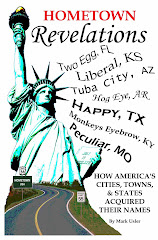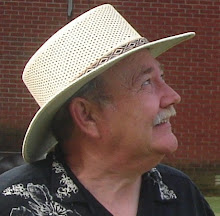Thursday, February 18, 2010
Gnaw Bone, IN - Lost in Translation!
Early French settlers started this Indiana community naming their new town Narbonne to honor the city in France. When the English settlers arrived they translated the name of “Narbonne” to “Gnaw Bone”. There are many towns throughout the United States where the original names were eventually translated into something completely different. As the United States expanded, it took on many different dialects. Eastern and Southern accents often evolved into a whole new meaning. As the English language became the spoken language across the United States, many translations became misinterpretations. As in this case, the name “Gnaw Bone” had a different meaning and nothing to do with the original founders intended name for their community. The post office was often the final arbitrator of decisions and sometimes mistakes were made. The post office was very reluctant to change a name once they made a decision.
Monday, February 8, 2010
Tucumcari, New Mexico
Tucumcari, NM
The name comes from an unbelievable Indian legend riddled with tragedy. Chief Wautonomah of the Apache Indian tribe was close to death. The chief had to decide which of his two finest braves would succeed him as the new chief. The names of the two braves were Tonopah and Tocom. These two braves hated each other and both were in love with Kari, Chief Wautonomah’s pretty daughter. The chief decided Tonopah and Tocom would fight each other to decide who would become the new chief and win the hand of Kari. When the fight began, Kari, the young Indian maiden, was hiding to see which brave would survive the fight. Tonopah plunged his weapon into Tocom’s heart, mortally wounding the brave. Kari was truly in love with Tocom and ambushed Tonopah. She plunged her knife into Tonopah’s heart and then took her own life. When Chief Wautonomah discovered his deceased daughter, he plunged her knife into his own heart. As he died from his mortal wound he cried out, “Tocom-Kari”. The area was known thereafter as “Tucumcari”. Later, the word “tucumcari” was a term used by the Indians meaning “place of ambush”.
Subscribe to:
Posts (Atom)




